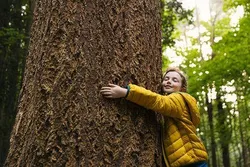
Supporting young peoples mental wellbeing post-COVID 
Discover how the trauma of COVID has impacted emotional development in children and explore strategies to improve mental health and wellbeing support post-COVID. Join the University of Glasgow on this two-week course to gain the knowledge and skills to support young people in a post-COVID world. ▼
ADVERTISEMENT
Course Feature
![]() Cost:
Cost:
Free
![]() Provider:
Provider:
Futurelearn
![]() Certificate:
Certificate:
Paid Certification
![]() Language:
Language:
English
![]() Start Date:
Start Date:
Self paced
Course Overview
❗The content presented here is sourced directly from Futurelearn platform. For comprehensive course details, including enrollment information, simply click on the 'Go to class' link on our website.
Updated in [June 30th, 2023]
This two-week course from the University of Glasgow provides an overview of how the collective trauma of the COVID-19 pandemic has impacted young people's emotional wellbeing and how to support them emotionally and socially. Participants will explore trauma, adversity, and attachment theory in a post-COVID context, as well as emotional literacy in young people. They will also learn practical strategies to improve children's mental health and wellbeing support post-COVID. This course is suitable for professionals from across the education and social care sector, as well as current or prospective foster and adoptive parents.
[Applications]
Upon completion of this course, participants will be able to apply their knowledge to better understand how the trauma of COVID has impacted emotional development in children and young people. They will be able to identify behaviours in children who have suffered trauma and develop core strategies to improve support for children and young people. Additionally, participants will be able to explore transitions within a child’s daily life and offer strategies to manage change. Finally, participants may wish to take their knowledge further by enrolling in the 10 credit Microcredential course that covers this subject at a more in-depth level.
[Career Paths]
[Job Position Path]
The career path recommended to learners from this course is Mental Wellbeing Support Worker. This job position involves providing emotional and psychological support to children and young people who have been affected by the trauma of the COVID-19 pandemic. The role requires a deep understanding of trauma, adversity, and attachment theory, as well as the ability to identify behaviours in children who have suffered trauma. The Mental Wellbeing Support Worker must also be able to provide practical strategies to improve children’s mental health and wellbeing support post-COVID.
The development trend for this job position is increasing demand for mental health support services for children and young people. With the pandemic causing a surge in mental health issues, there is an urgent need for professionals who can provide emotional and psychological support to those affected. As such, the demand for Mental Wellbeing Support Workers is expected to continue to grow in the coming years.
[Education Paths]
The 10 credit Microcredential course is part of the University of Glasgow’s Postgraduate Certificate in Supporting Young People’s Mental Wellbeing Post-COVID. This Postgraduate Certificate is a one-year, part-time program that provides an in-depth exploration of the impact of the pandemic on young people’s mental wellbeing and how to support them. It is designed to equip professionals with the knowledge and skills to develop and implement effective strategies to support young people’s mental wellbeing in a post-COVID world. The program covers topics such as trauma, adversity, attachment theory, emotional literacy, transitions, and strategies to improve mental health and wellbeing support. It also includes a research project that allows learners to apply their knowledge to a real-world context. The program is delivered online and is suitable for professionals from across the education and social care sector.
Course Provider

Provider Futurelearn's Stats at AZClass
Discussion and Reviews
0.0 (Based on 0 reviews)
Explore Similar Online Courses

Develop Your Own Game Quick & Easy with Game Maker Studio

Study Developmental Psychology Online - FutureLearn

Python for Informatics: Exploring Information

Social Network Analysis

Introduction to Systematic Review and Meta-Analysis

The Analytics Edge

DCO042 - Python For Informatics

Causal Diagrams: Draw Your Assumptions Before Your Conclusions

Whole genome sequencing of bacterial genomes - tools and applications

Meditation

Mental Health First Aid Skills -


Start your review of Supporting young peoples mental wellbeing post-COVID